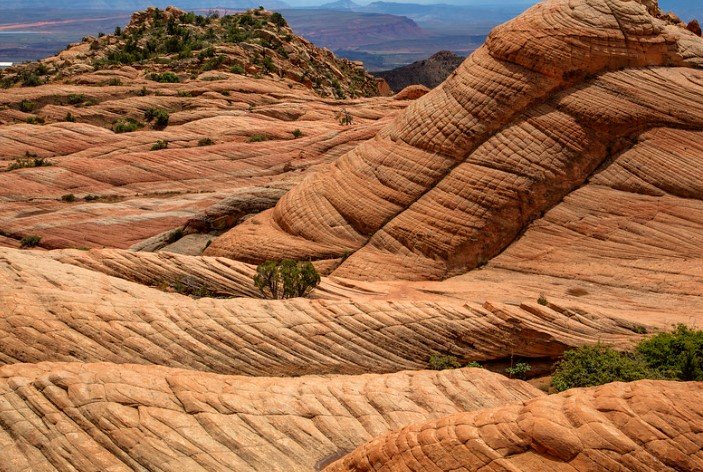The U.S. Department of Justice has officially responded to Utah’s high-profile lawsuit, dismissing the state’s bid to take control of millions of acres of public land as “without merit.” The federal government argues that Utah’s legal challenge faces significant obstacles and fails to meet the criteria needed to bypass lower courts and directly petition the U.S. Supreme Court.
Utah’s Lawsuit Claims the Federal Government Has No Right to Hold ‘Unappropriated’ Land
Filed in August, Utah’s lawsuit targets the federal Bureau of Land Management (BLM), which controls roughly 18.5 million acres of land across the state. Utah contends that the federal government has no constitutional authority to hold onto these lands indefinitely, especially those that are not formally designated for specific purposes, such as national parks or wilderness areas.
This “unappropriated” land, while leased for uses like grazing, recreation, and mineral extraction, lacks formal designations like national monuments or forests, which are excluded from the lawsuit. Utah argues that these vast stretches of land should not be held by the federal government without a clear, designated purpose. The state is asking the Supreme Court to declare the practice of holding land “in perpetuity” unconstitutional and issue an injunction that would set in motion the transfer of 18.5 million acres of land to state control.
However, the U.S. government strongly disagrees, calling the state’s claims baseless and laden with legal flaws.

Legal and Jurisdictional Obstacles
In a legal brief filed on Thursday, attorneys representing the federal government asked the U.S. Supreme Court to reject Utah’s motion, citing procedural issues that make the case unfit for original jurisdiction. The government contends that Utah’s lawsuit does not meet the specific criteria needed to bypass lower courts and proceed directly to the nation’s highest court.
Original jurisdiction is reserved for cases where the dispute involves direct conflicts between states and the federal government, particularly issues like state boundaries or a state’s ability to enforce laws. The Justice Department’s filing argued that Utah’s lawsuit does not involve any such dispute, and as a result, the case should follow the standard legal path, beginning in a lower court before moving up the judicial ladder.
Utah’s argument that the federal government cannot retain public land against the state’s wishes runs counter to the U.S. Constitution’s supremacy clause, which asserts that federal law overrides state law. The Justice Department also pushed back on Utah’s claims that the government has a constitutional duty to dispose of unappropriated land, pointing out that while Congress has the power to dispose of federal land, there is no constitutional requirement that it must do so.
12 States Rally Behind Utah’s Legal Challenge
The lawsuit has garnered support from a number of other states, with 12 states joining Utah in its legal battle over public land control. These states argue that federal land management is overly restrictive and often hinders local economic activities, such as resource extraction and development.
In Utah’s view, the federal government’s refusal to transfer public land undermines state sovereignty and local interests. One of the major concerns raised in the lawsuit is that Utah cannot collect revenue from land it does not control, a situation that has sparked tension between state and federal authorities.
While Utah’s frustration with federal land control is understandable from a state perspective, the federal government contends that such policy disputes are better addressed through legislative avenues, not the courts. As the Justice Department sees it, Utah’s policy objections are best left to Congress, which holds the power to enact laws governing land disposal and management.
A Battle for Control of Public Lands
The ongoing legal battle highlights a growing divide between state governments and the federal government over land control, particularly in the Western U.S., where vast tracts of land are federally owned. Utah’s lawsuit is just one of many challenges the federal government has faced in its role as the primary landowner and manager in the region.
Supporters of Utah’s position argue that federal control over public lands stifles state economic development and infringes upon local sovereignty. On the other hand, federal land management advocates believe the U.S. government’s stewardship is essential to preserving public lands for future generations and protecting natural resources from overexploitation.
The case now rests with the Supreme Court, which will decide whether to take up the issue directly or require the dispute to be resolved in a lower court first. Either way, the decision will have significant implications for the future of public land management in the United States.

Comments